PATRON PROFILE: Eastbourne Chamber of Commerce
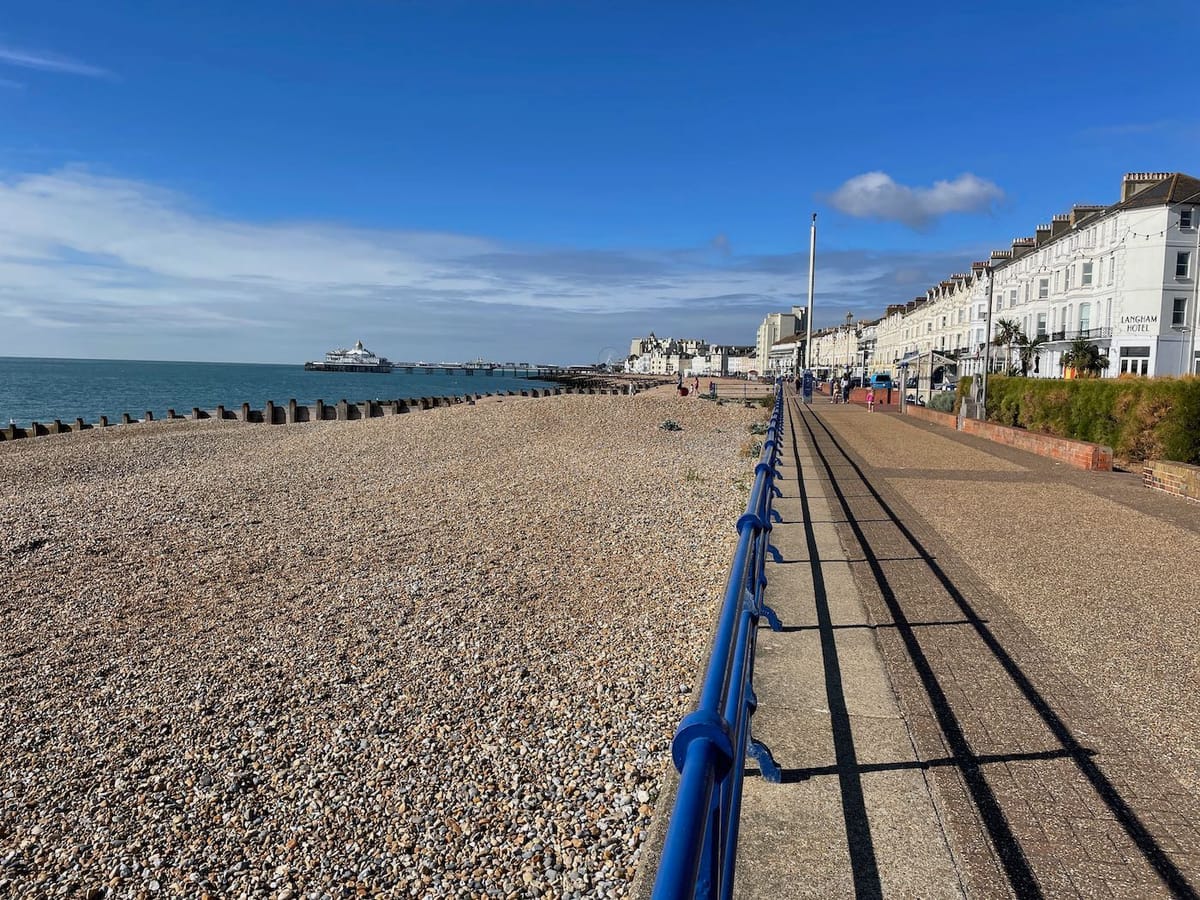
We ask Christina Ewbank, chief executive of the Eastbourne Chamber of Commerce and borough councillor, about what the organisation does, what’s special about Eastbourne – and whether links with the local council lead to conflicts of interest
By Rebecca Maer
The further away from London you get and the nearer to the coast in Eastbourne, the more relaxed both businesses and their customers become.
At least, that’s the theory of Christina Ewbank, who spent 25 years as sales director for Mercedez-Benz across Sussex and parts of Surrey.
During that time, she came to a clear conclusion about the people she dealt with.
“The staff in Eastbourne were always more relaxed, the customers were always delightful: the nearer you got to London, the more demanding and unreasonable they became,” she said.
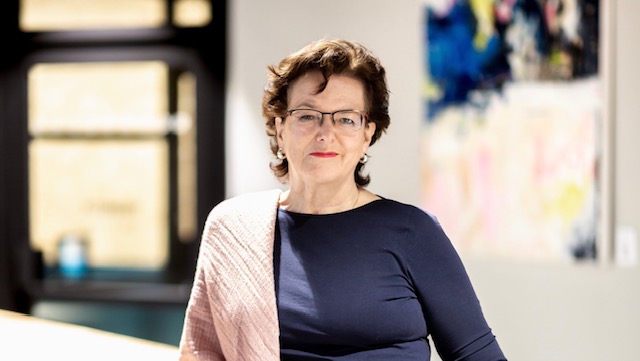
“So I’ve always felt the work/life balance here is good because we’re slightly more chilled as a population due to our surroundings with countryside and beaches.
“I remember first coming over the Downs and thinking how lovely it looked, then driving along the seafront, past the hotels and the carpet gardens.”
What does the chamber do?
The first chamber of commerce was formed more than 400 years ago in 1599 in the French port city of Marseille to provide a collective voice for traders and merchants.
In the UK, the first chamber was established in Glasgow in 1783 to give businesses in the city a unified voice. Many more started as the industrial revolution brought enormous changes to British industry in the 19th century.
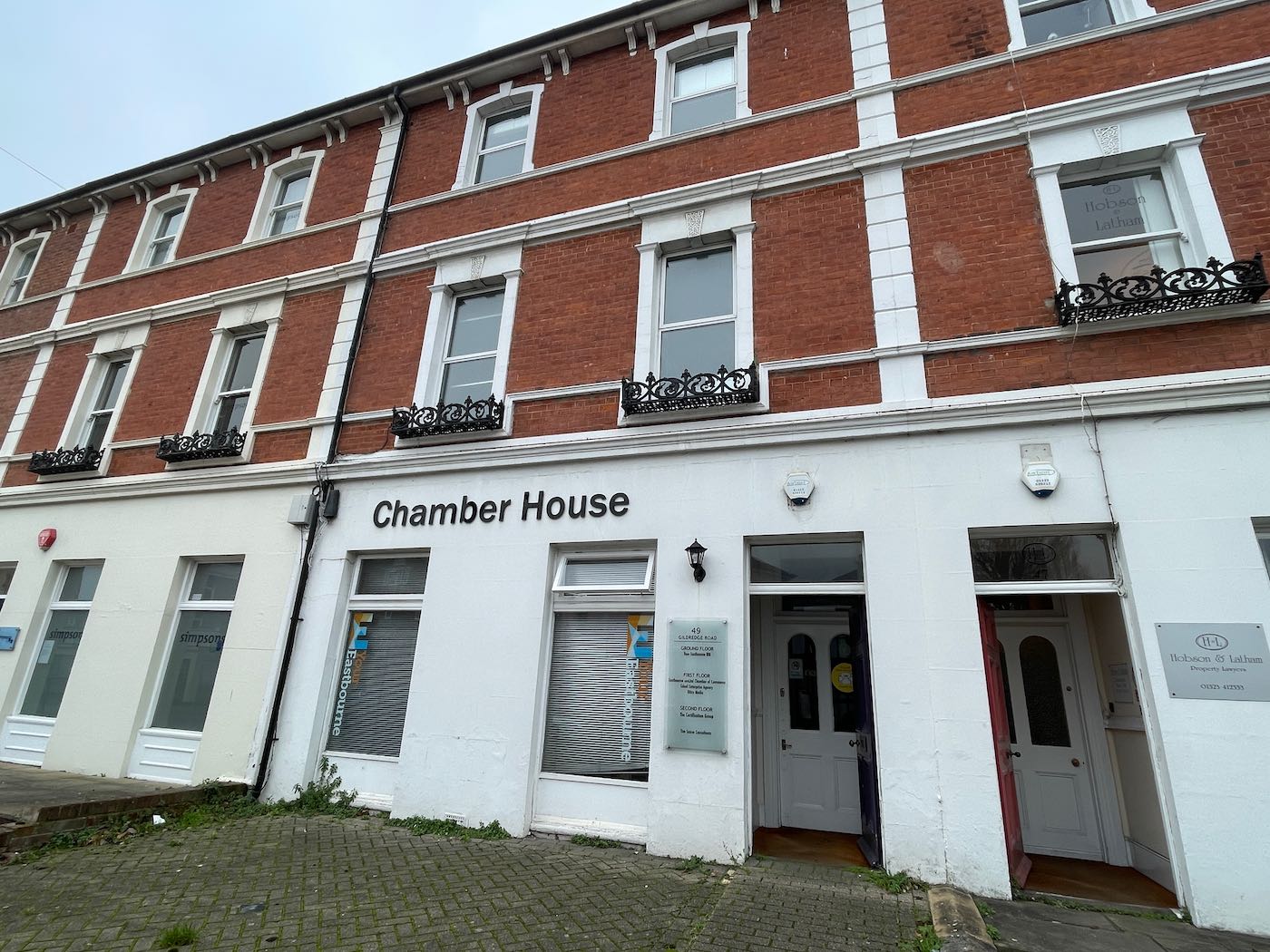
The Eastbourne chamber (above) has 550 members and claims to be the largest town chamber in the south-east. Its vision is to create the best place to live and work in the UK.
Christina cites three reasons which make the town an attractive place to live and do business: a good work/life balance; fast broadband connectivity; and the chamber's positive collaboration with local authorities and organisations such as the Eastbourne Hospitality Association.
“If there is a barrier or a problem, we can work together and that gives us a huge advantage,” she said.

Networking events such as regular business breakfasts, events linked to Airbourne, the Eastbourne Business Awards, and days out for members and their families bring members together.
“People who belong to the chamber want the best for the town and economy here. They support each other – and it’s a great way to make friends,” said Christina.
Who is involved at the chamber?
There are 17 unpaid directors of the chamber, including Towner director Joe Hill and business owners such as Shoes Simes, who runs pubs and restaurants in the town, and Ashley Pugh, who owns Brufords jewellers.
Christina joined in 2013 as chief executive, having moved to Eastbourne 25 years ago. During her time in the motor industry, Christina also spent a year in Brussels for Lexus as regional manager for northern Europe.
Now 67, she cannot imagine retiring; she was elected to Eastbourne Borough Council as a Liberal Democrat in Devonshire ward in 2023.
Christina’s decision to become a Lib Dem councillor was prompted partly by national events during Covid lockdowns relating to the Conservative government.
She was particularly annoyed when Dominic Cummings, adviser to then Prime Minister Boris Johnson, gave a press conference in the garden at No 10 Downing Street in May 2020.
He responded to criticism after he drove 250 miles from London to County Durham against Covid regulations during lockdown, then claimed he was checking his eyesight on a day trip on Easter Sunday.
“I just couldn’t believe he was being legitimised by being allowed a press conference in No 10,” she said.
Christina lives on the edge of Devonshire ward and finds helping people there as a councillor rewarding. She said she has intervened to help families going into temporary accommodation.
Case study: lobbying for A27 upgrade
The chamber says it has played a key role in improvements to the A27 near Eastbourne in recent years.
It ran a survey of members asking about how effective the road was. Christina said there were more than 1,000 responses. “The passion that came through was incredible.”
Of the responses, 97% said it was not fit for purpose between Beddingham, on the edge of Lewes, to the Cophall roundabout on the A22 near Eastbourne.
Christina and then Eastbourne Conservative MP Caroline Ansell secured a meeting with Patrick McLoughlin, who was Conservative transport secretary from 2012 to 2016.
“He flicked through the comments and could see the passion on every page from people who had problems, lost loved ones and how it affected their business,” said Christina.
One hotel said it believed it lost many thousands of pounds in conference business because the agent who came said he could not send visitors until the road was sorted.
Mr McLoughlin then drove the road and met Christina and Ms Ansell at the town hall. He agreed with them, put the A27 into a strategic routes programme and allocated £70 million for improvements.
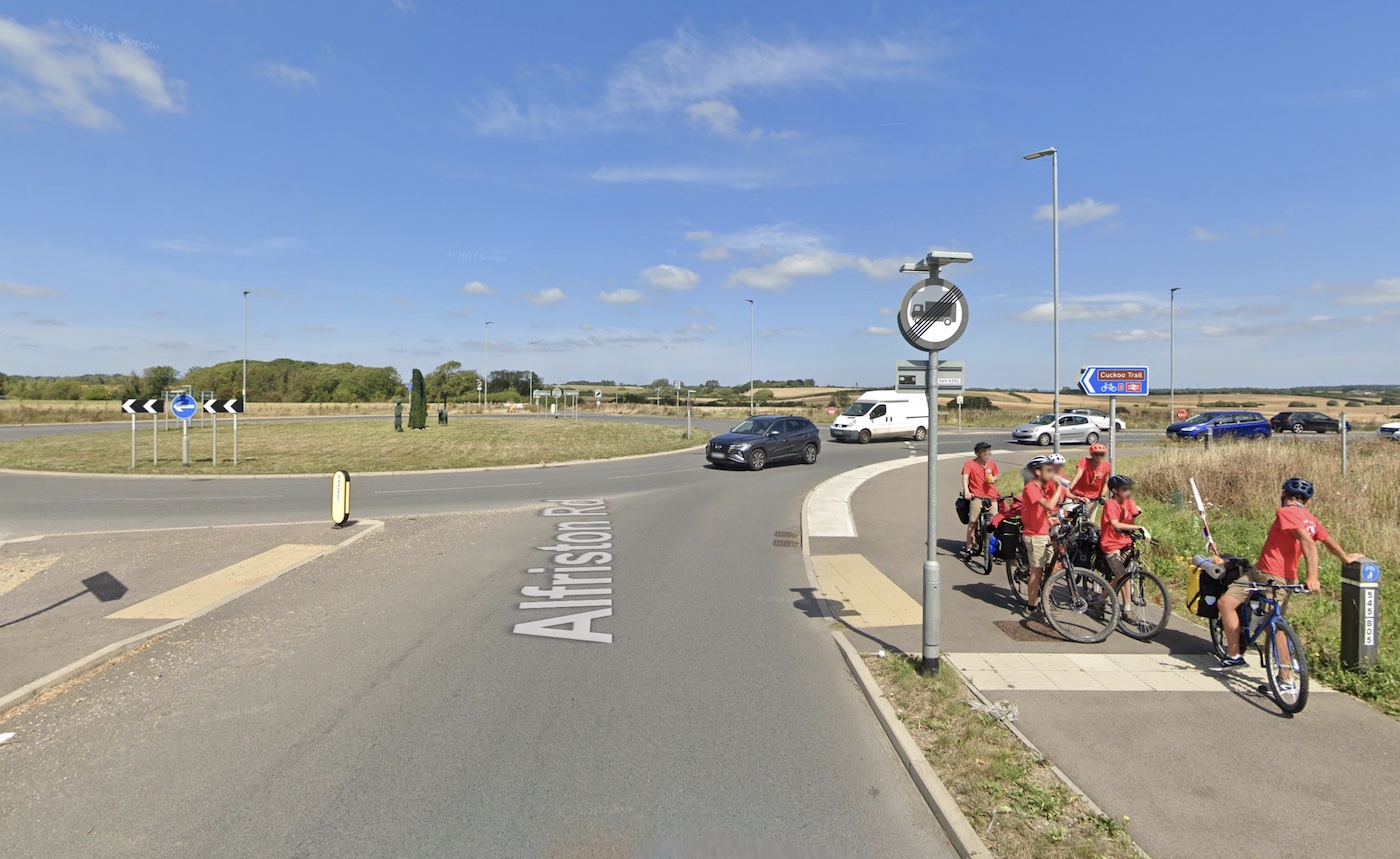
These are now in place at the widened Drusillas roundabout, near Alfriston, and around the Cophall roundabout and lights near Polegate. Improvements also include a horse crossing near Wilmington after Christina and Ms Ansell noticed riders trying to cross the A27.
The next transport secretary from 2016 to 2019, Chris Grayling, was persuaded to allocate £3 million for a business case in the longer term for a new, safer road without junctions to replace the current A27.
“We have secured at least £100 million into the area over ten years due to making a noise, but we need to keep up the pressure,” said Christina.
What are the challenges facing Eastbourne?
Christina puts improving the street environment as one of the top priorities.
She cites two main issues: many Houses in Multiple Occupation (HMOs) can create problems with anti-social behaviour, while large commercial refuse bins on the streets are unsightly.
Devonshire ward, near Eastbourne pier, is in the bottom 20% of income-deprived areas of the country due to the number of HMOs, according to Government figures here.
“I don’t mind being unpopular and challenging the council on behalf of the chamber and residents.”
Christina ewbank
Christina said large Victorian houses are bought by developers and turned into HMOs. However, the people in them have little living space, shared facilities and often no garden so they spill out onto the street.
“The number of HMOs has had an effect on the seafront and the town centre,” she said.
She is challenging the practice of turning houses into HMOs because there is a high demand for family housing in Eastbourne.
Christina also believes the overall street environment would also be helped by measures to tidy the physical surroundings.
She noticed on travels in France and Italy that many towns and cities house large refuse bins underground. She would love to see that as a solution in Eastbourne.
There has been a pilot scheme in Liverpool and Brighton and Hove are looking into this idea.
Eastbourne BID (Business Improvement District) held a summer street party in August 2024 in the narrow town centre roads of Station Street and Mark Lane.

Lights were strung across the lane and benches put out. But the unattractive, large commercial bins lining one side of Station Street had to be wheeled out of the way temporarily for the event.
“I just want to make Eastbourne better so I will keep banging on about HMOs and putting bins underground,” said Christina.
Is there a conflict of interests with the close links between the chamber, the council and Lib Dems?
Christina believes that what is good for the chamber, is also good for the town and its residents so she believes her role as chamber chief executive and councillor dovetail.
Councillors are unpaid but can claim allowances to cover their expenses. Some have ‘special responsibility allowances’ if they chair committees, as listed here.
Christina chairs the audit committee and said she is keen to question the council over contracts, such as the grounds and maintenance contract with idVerde. The company was failing to empty bins in some parks in line with its contract during the winter of 2023 / 24.
“I don’t mind being unpopular and challenging the council on behalf of the chamber and residents,” she said.
However, the council, the Eastbourne BID and the chamber are intertwined.
Council leader Stephen Holt, a Lib Dem, is also chief executive of BID, which aims to improve the town centre using a levy on businesses. It has offices in Chamber House and Stephen Holt is a councillor with Christina in Devonshire ward.
Shoes Simes, who owns hospitality businesses including the recently refurbished Glass House restaurant on the seafront, is unpaid chair of the BID board, on which Christina also sits as a director. She is also vice president of the chamber.
Christina acknowledges how it could appear from the outside. But she maintains: “You have people who are prepared to do stuff for the good of the town who gravitate together so if something needs to be done, they'll do it. And that’s what’s happened.
“I try to separate the roles completely. But what is good for the town is good for the chamber and for the residents,” she said.
Unfounded accusations by keyboard warriors are relentless and, she points out, at times highly defamatory.
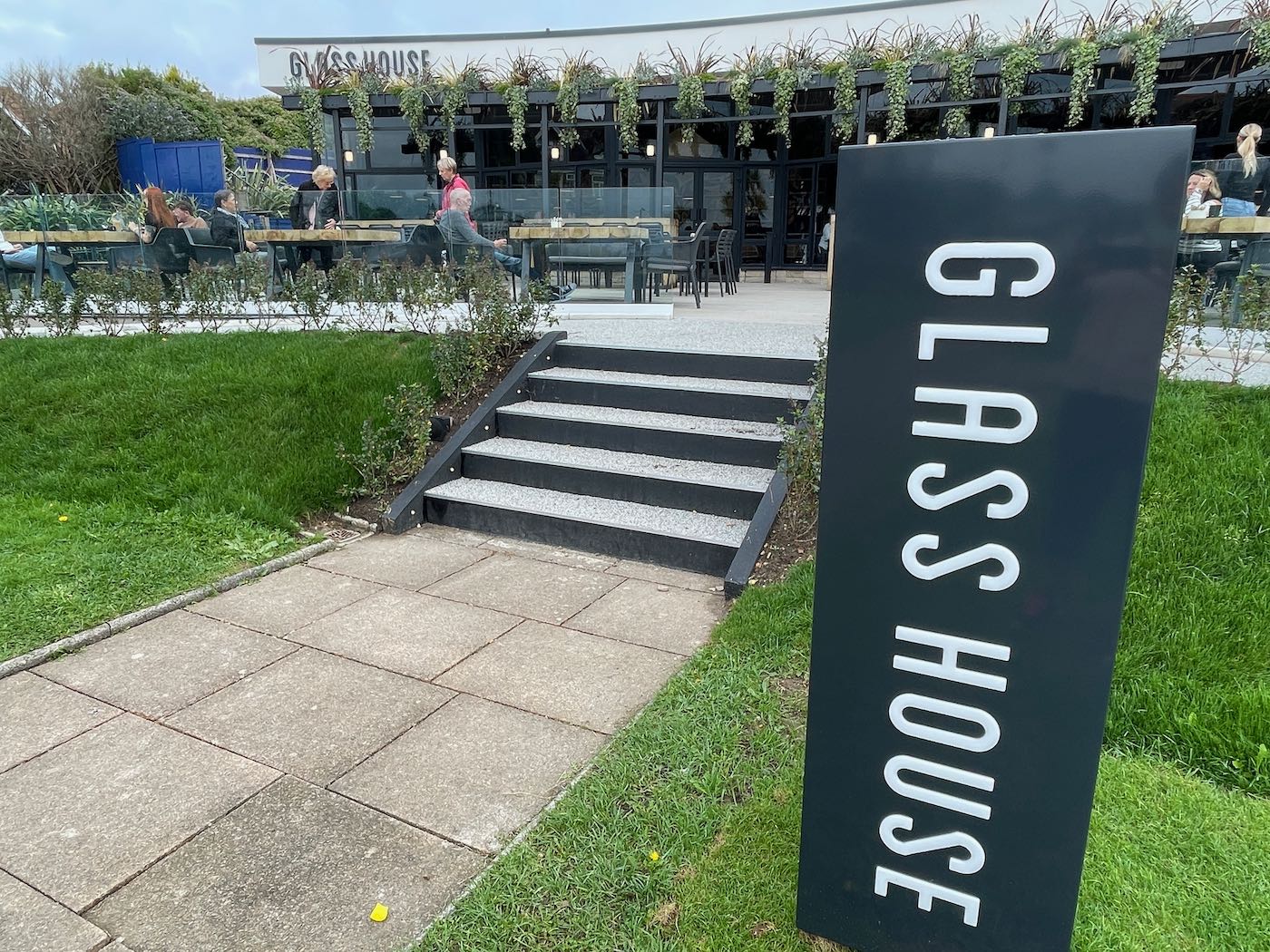
The Glass House restaurant has been developed by local hospitality business owner Shoes Simes on the site of a council-run cafe next to the Redoubt fortress. The council, as the landlord, paid around £200,000 for capital and electrical works to make the building safe and ready to rent out.
Christina said that there were 25 initial expressions of interest but many pulled out due to the condition of the building.
The businesses left in the process presented what they could do and, Christina said, the best offer was from Shoes Simes, who has invested hundreds of thousands of pounds fitting the building and kitchens out.
The council is also the landlord for Bistrot Pierre, near the Wish Tower, which is operated by a restaurant company which fitted it out and pays a commercial rent.
Christina said: “The council used to own two dilapidated sheds but it now owns two successful venues with beautiful premises. If either business leaves, the council then owns these fantastic assets.
“I reckon, between the two of them, they’re probably worth over £4 million as assets that were, before, falling-down sheds. This is a good deal for Eastbourne.”
And the future?
There are Levelling Up funds earmarked for the pedestrianisation of the lower end of Terminus Road, in Victoria Place, running down to the seafront.
Meantime, there will also be improvements in the middle section of Terminus Road. This will involve repaving and levelling the current, slightly tatty pedestrianised stretch from Bankers’ Corner to near Marks & Spencer.
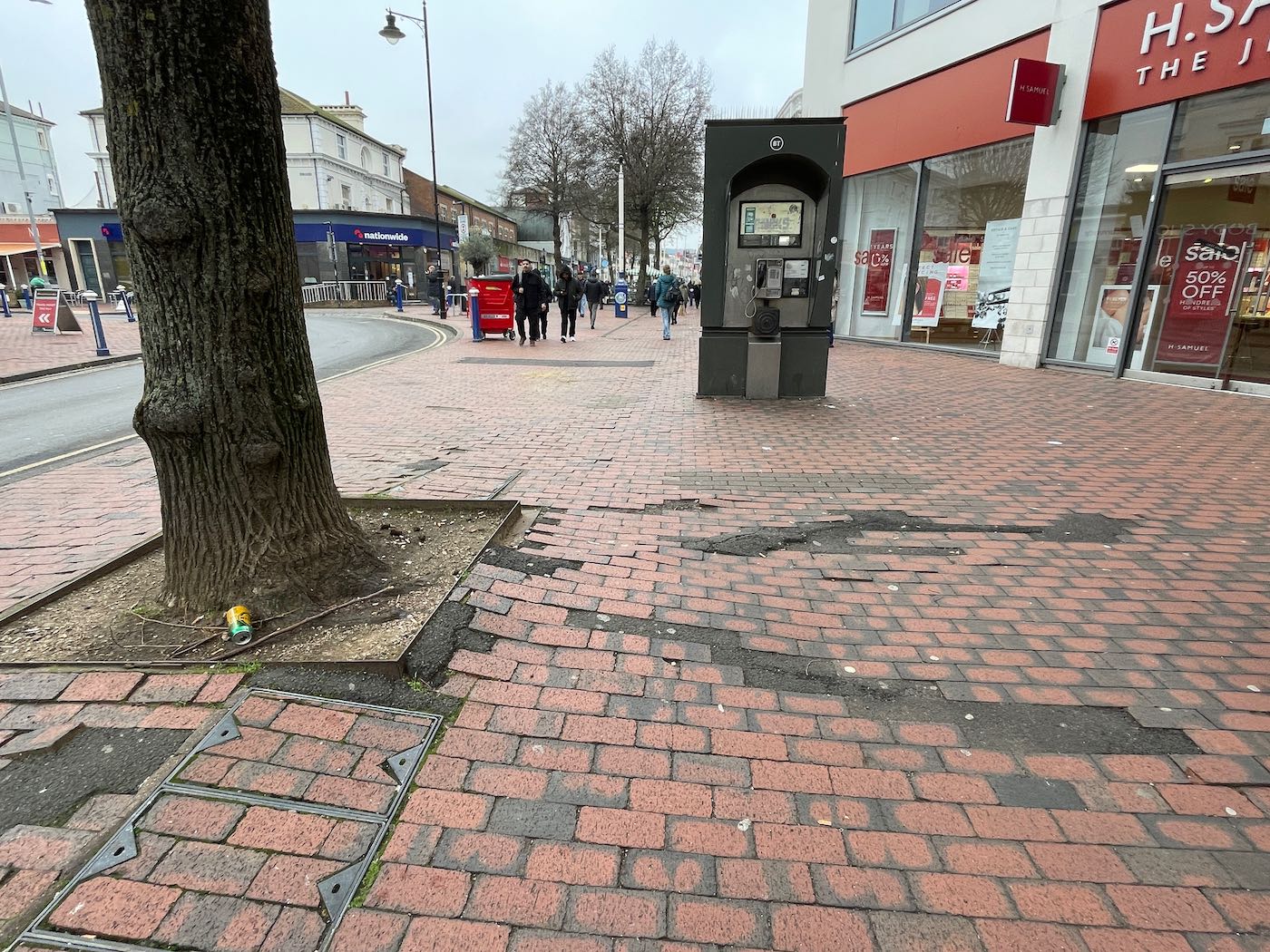
This is an East Sussex County Council scheme although it will not, as originally planned, create a town square-style public space by M&S due to rising costs as reported here. However, cars will no longer be allowed through the short stretch of road at the southern end.
“When you look at it, there will be this lovely level area but it will still have a road through it. Because the difference will be so stark, we can then lobby to get the next part of the job done, right up to TJ Hughes,” Christina said.
She also hopes the new Sussex combined local authority, which could be place by 2028, will lead to a coherent vision for all the coastal towns.
There is much to do and the chamber intends to remain at the heart of lobbying and decision making for the good of Eastbourne.
:: Eastbourne Chamber of Commerce is a patron of the Eastbourne Reporter, supporting our not-for-profit company with a monthly donation to help our independent journalism. Please use the contact form on the website if you are interested in supporting us in this way.


